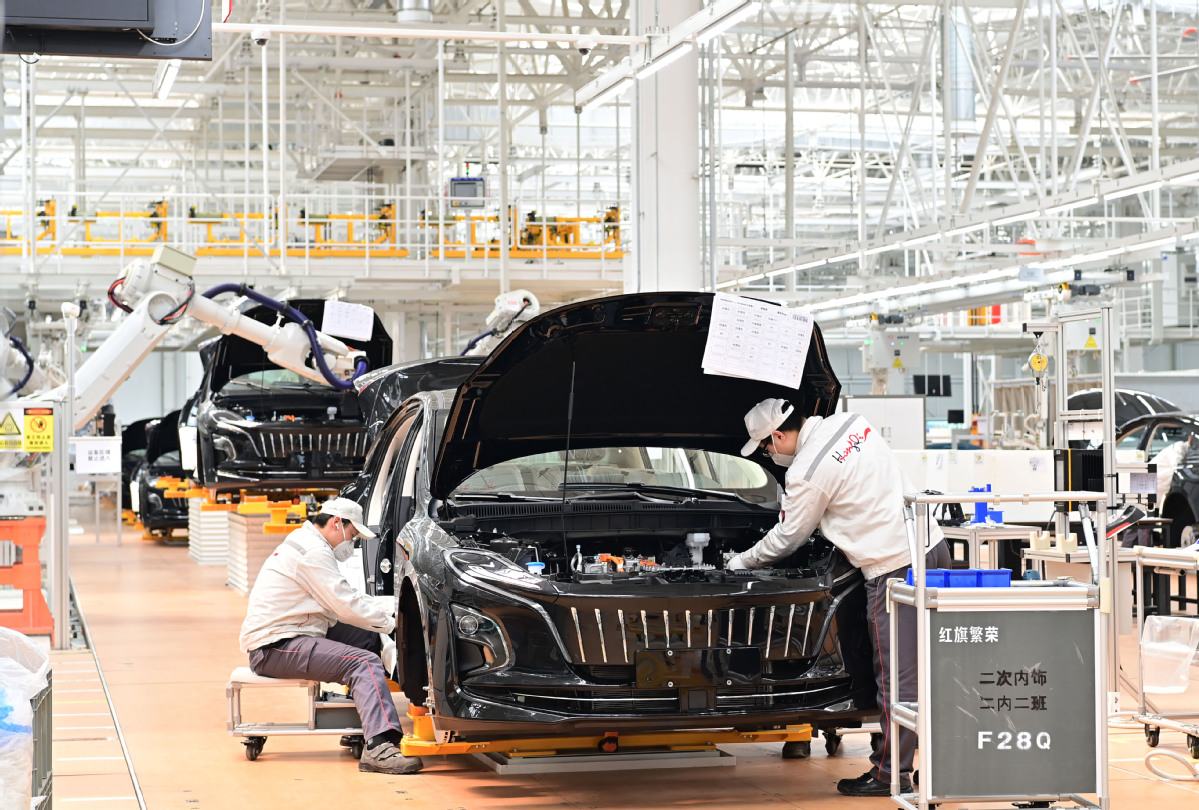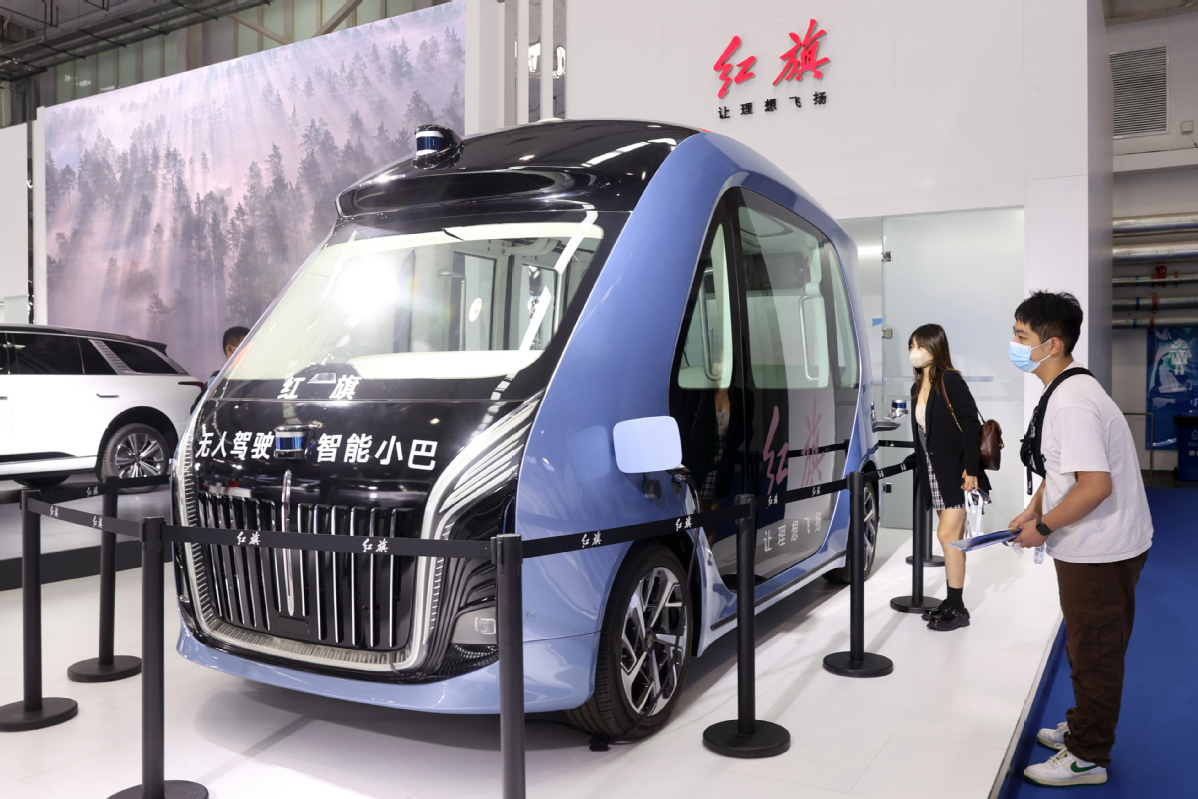Automaker injects innovative impetus into power growth


State-owned China FAW Group shines via excellence in new electric vehicles
Hongqi, the high-end brand of China FAW Group — a Changchun, Jilin province-based State-owned automaker — will launch 13 types of electric vehicles by 2025, the group's top executive said.
These vehicles, aiming to boost competitiveness with domestic and foreign peers, will cover four of Hongqi's product categories.
China FAW Group plans to raise the production and sales of electric-powered products under its Hongqi brand to more than 500,000 vehicles in 2025.
Xu Liuping, board chairman of China FAW Group, said that with EV markets booming around the world, Hongqi has always used innovation as an impetus for brand development to keep it competitive in the new energy automobile industry.

Hongqi will continue to pursue excellent design aesthetics for electric vehicles to attract more customers, especially younger consumers, company officials said.
The company introduced three concept cars in September. The Hongqi Sedan EV, to be launched in 2023, has a range of more than 1,000 kilometers and makes use of advanced autonomous driving technologies, the company said.
An electric Hongqi SUV, to be released in 2024, is expected to feature an electric drive system and an intelligent telematics system. Telematics refers to in-car devices that can monitor elements such as mileage and braking.
The Hongqi E-LS, another sport utility vehicle, is scheduled for launch in 2025. Hongqi also unveiled its first multipurpose vehicle in September. The gasoline-powered seven-seat MPV is available in five models. Its rivals include models from international carmakers like United States-based General Motors and Japan's Toyota Motor Corp.
Hongqi sold 211,000 vehicles in the first three quarters, growing 5.1 percent on a yearly basis. After entering markets in 78 countries and regions by 2021, including Saudi Arabia, Norway, Denmark and Japan, the brand launched an electric SUV model in Israel in April.
"Amidst opening-up in the auto industry, strengthening innovation is vital for the group to stay competitive during the new round of global industrial upgrading," Xu said.
FAW has established its research and development presence internationally, including a worldwide staff of 5,000. Its innovation facilities, located in Germany, Austria and the US focus on innovations in design, EVs, artificial intelligence, 5G applications, new materials and processes as well as intelligent manufacturing.
German premium carmaker Audi and China FAW Group established a joint venture — Audi FAW New Energy Vehicle Co Ltd — in the first quarter. The new venture broke ground on its first electric vehicle factory in June in Changchun. Company officials said they were attracted by China's vast automotive market, Jilin's favorable business environment and the well-developed industries both upstream and downstream in Changchun.
The JV will pour 35 billion yuan ($4.8 billion) into the project. Manufacturing facilities are expected to be operational by the end of 2024, with a production capacity of over 150,000 vehicles per year.
China's EV sales have remained a bright spot this year. More than 4.56 million EVs were sold in the country in the first three quarters, soaring 110 percent year-on-year and taking up 23.5 percent of the total share of the nation's automotive market, according to Beijing-based China Association of Automobile Manufacturers.
Despite disruptions in the first half, including rising prices for raw materials, China's policies on stabilizing growth and promoting consumer spending have helped the automobile industry overcome difficulties and expand rapidly from June to September, said Chen Shihua, CAAM deputy secretary-general.
Chen predicted that China's EV market will maintain sound performance in the coming months, as the government has extended the sales tax exemption for EVs through 2023.




































